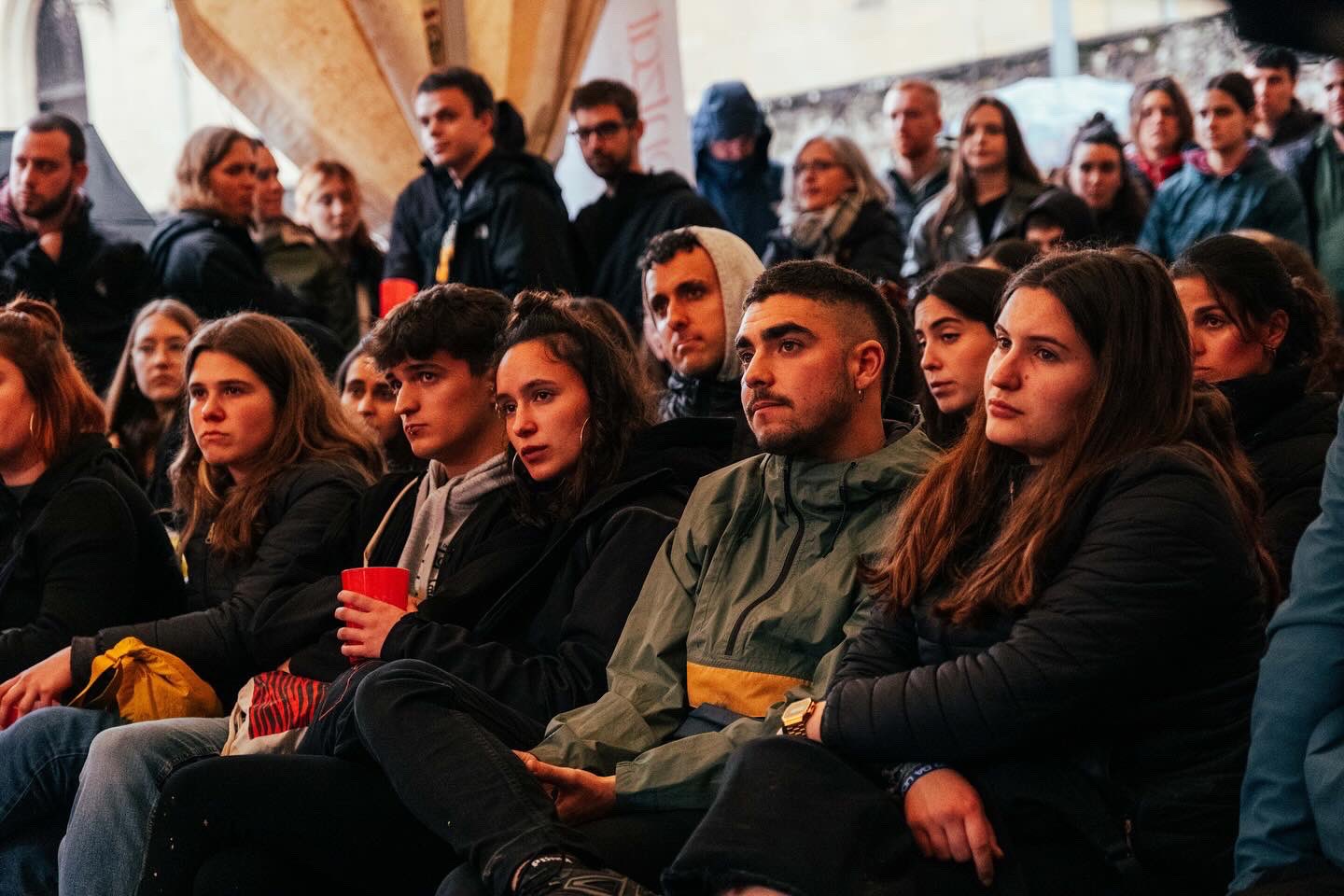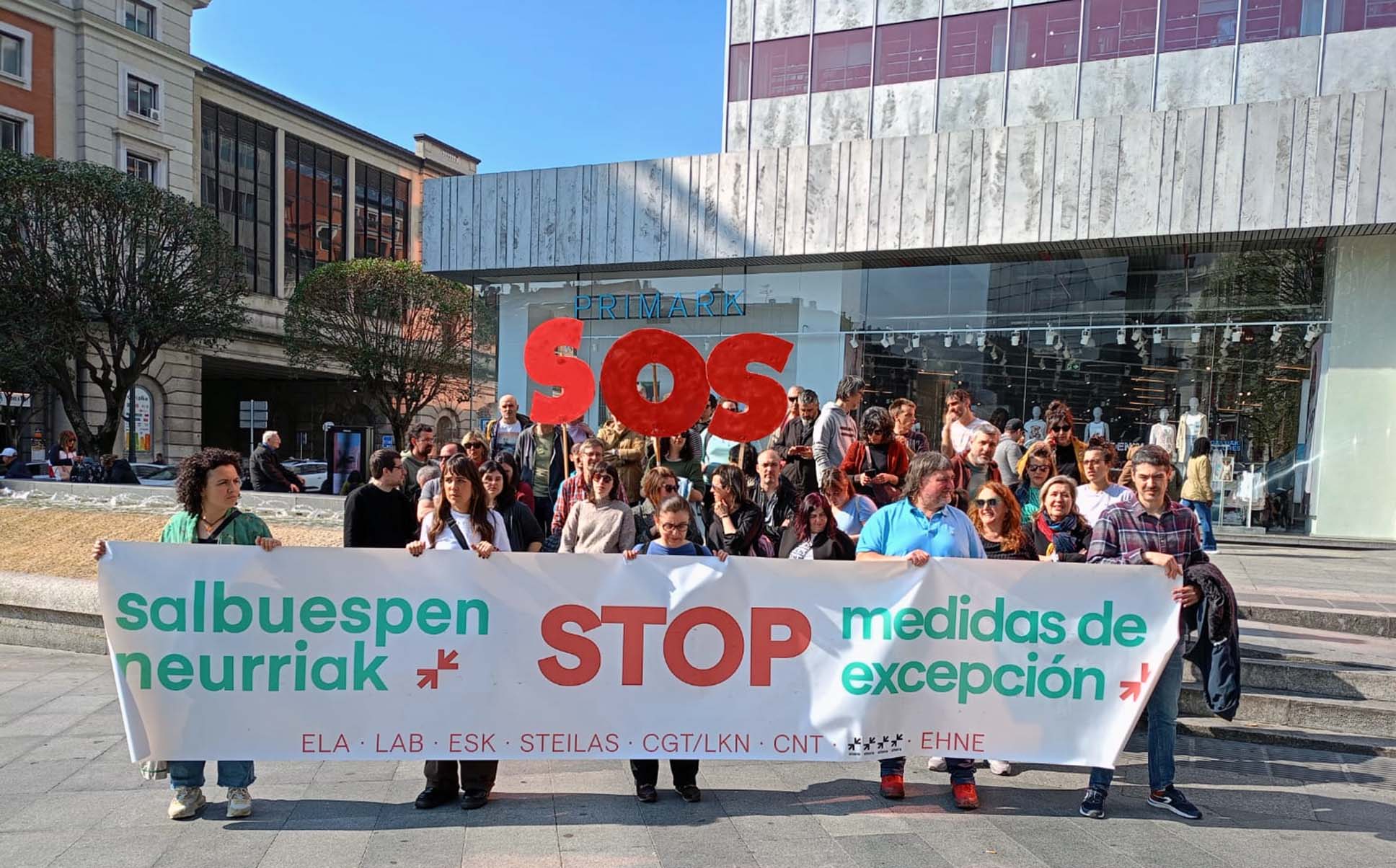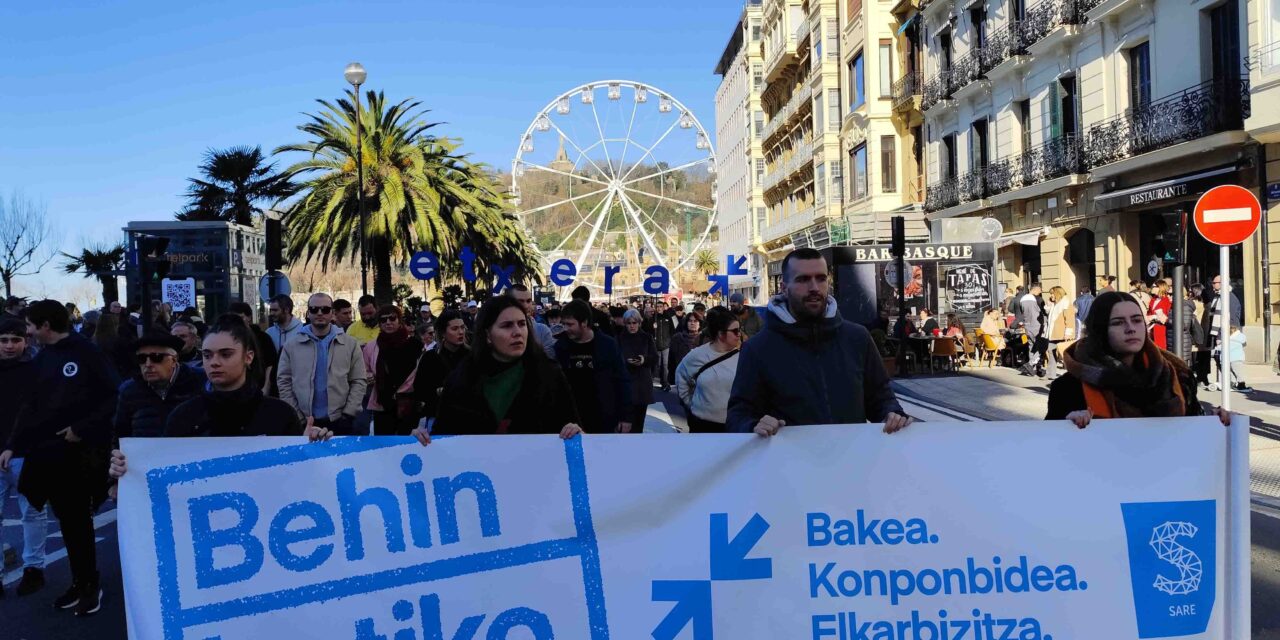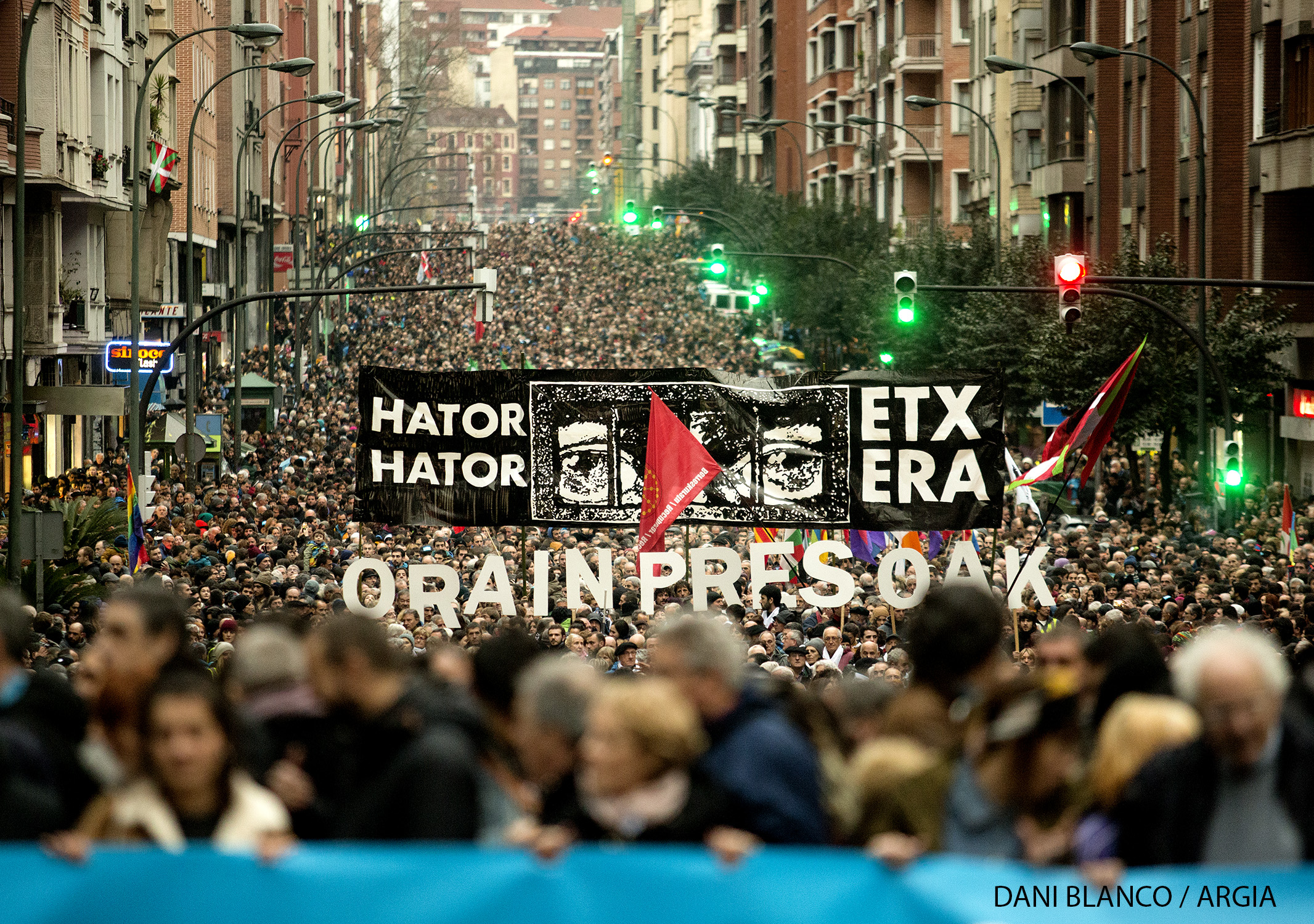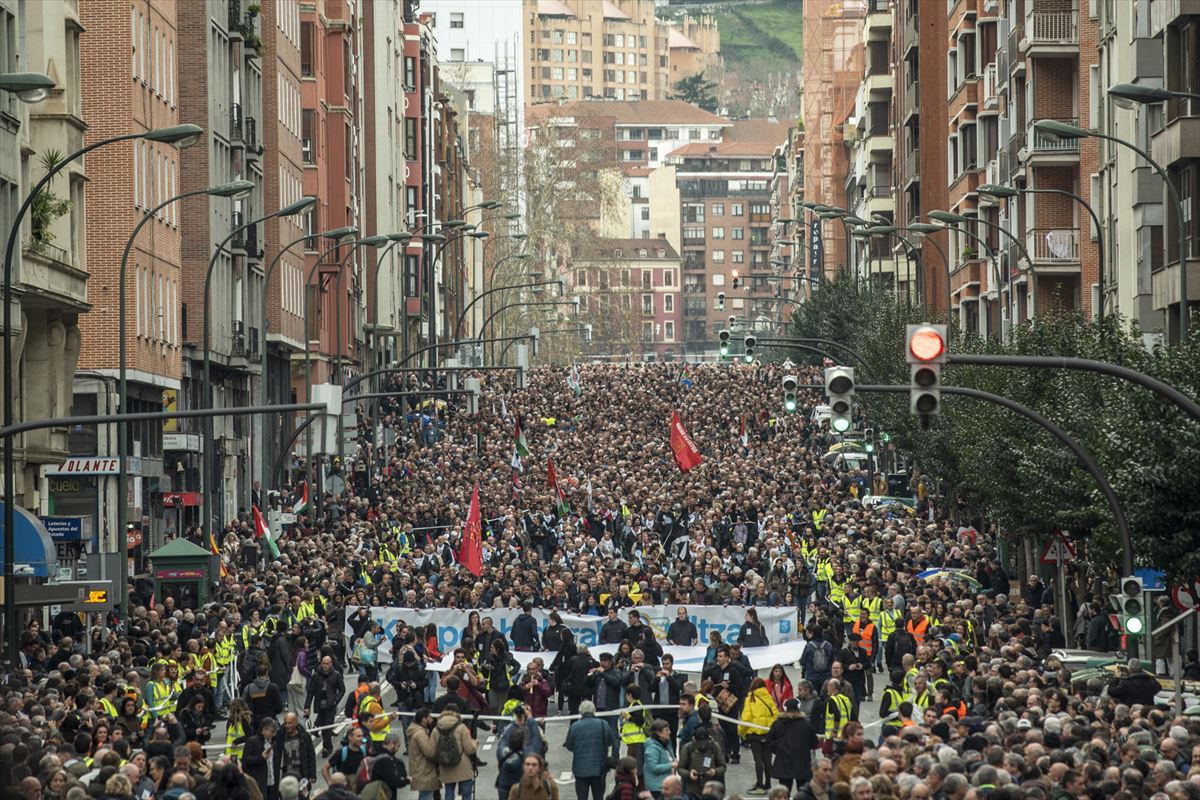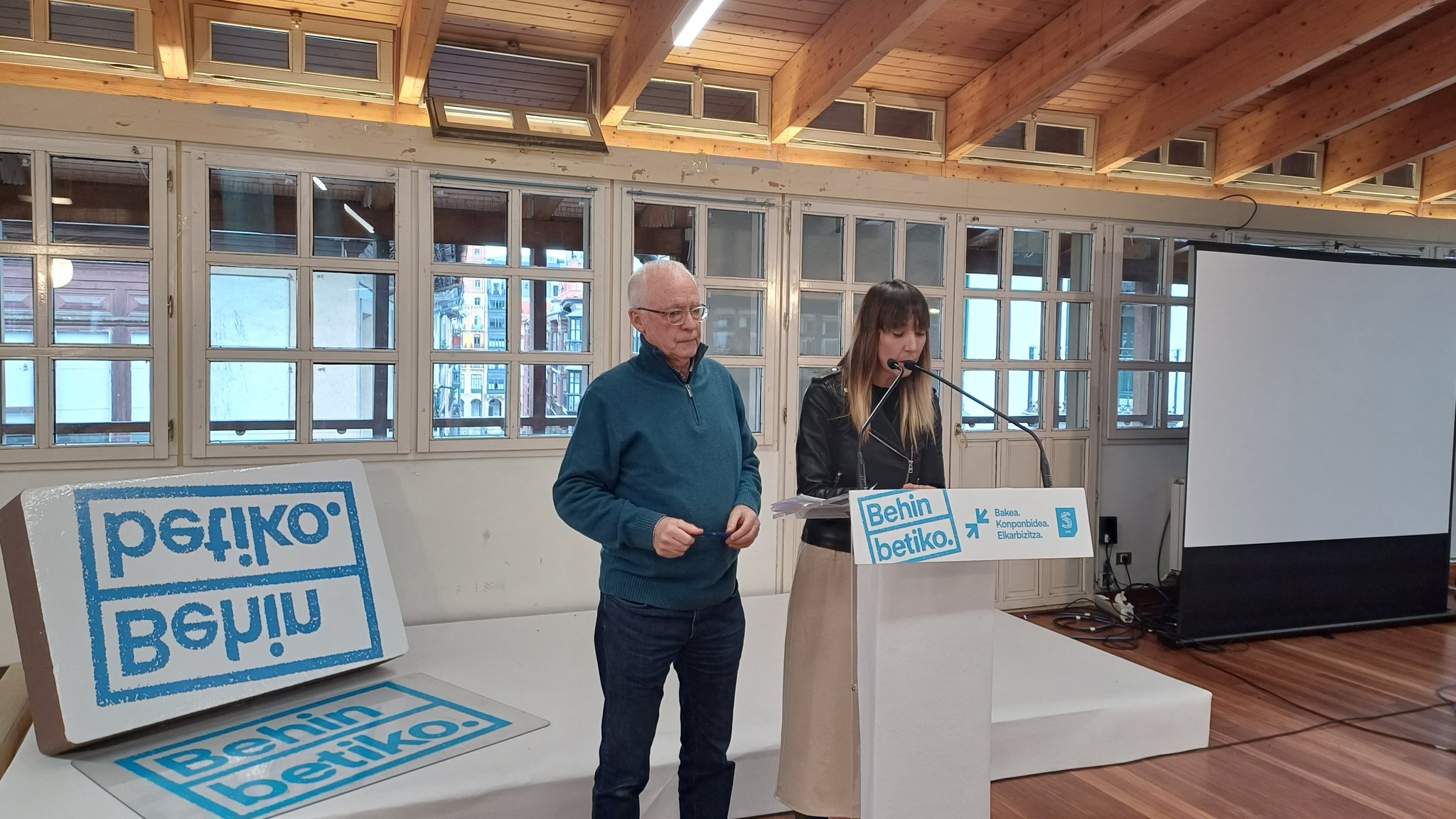Bring prisons closer, start
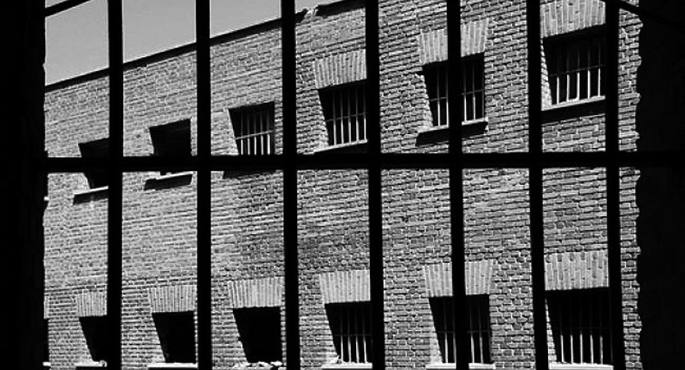
According to the December ETXERAT report, there are 606 Basque political prisoners scattered in 84 prisons, most of them in Spain (445) and France (134). In their situation there is no innovation or foresight of the future. At the moment, the definitive cessation of ETA's armed activity has not clearly influenced the Spanish Government's prison policy: it continues with the political use of the situation of prisoners, in the logic of revenge, and it repeatedly violates many of its rights and those of its relatives. Although the political situation is very different, this summary could be compared to any year in the past 30 years.
This means that we must continue to denounce prison policy with determination, both from a political and a humanitarian point of view. On the Abertzale left in particular, but also on the Basque society in general, today remains the hardest legacy of the conflict and society as a whole will hardly be normalized, without society and the rest of the conflict moving towards an agreed peace process.
Next Saturday the crowds will come out again on the streets of Bilbao, and that is very important, essential, but not enough. First of all, those who want the new situation to be felt in prisons too will have to do so in a unified way. This, in a first step, requires a consensus between Bildu and the PNV to agree what and how it can be defended in the new political scenario. On a scale from 1 to 10, the agreement of 6 can be easily reached, which would be an important step at this stage.
After all, pp has to feel that in Euskal Herria he loses and that he remains the same with the issue of prisoners. Can the Abertzale left achieve it only with the pressure of the street and the institutions? No. Can the PNV achieve this with its diplomacy? Hardly. Neither Bildu nor PNV at the same time, but that is an essential step for the PSE/PSN and other political and social sectors to rise to the cart of the peace process.
There is no longer talk of amnesty, but of what can be done with the change in the interpretation of Spanish laws. The General Chamber of the Strasbourg Case will examine the action taken by the Spanish Government against the judgment given on 20 March in favour of the Rio INES dam by the Parot doctrine, among other matters. Some 70 prisoners have been affected by this doctrine of revenge and the Spanish Government has a wonderful opportunity to start a change of course, as is expected, if the European High Court of Human Rights ratifies the judgment. From there everything can
be different, mantle if desired, but different. The Spanish Government could put some 200 prisoners on the streets, that is, the majority of other prisoners, that is, two-thirds or three-quarters of the sentence passed. There is no need for a change of law in the first step for most prisoners to be transferred to prisons above Madrid, or for some sick prisoners to be released on parole, or for France to be able to act differently…
The prisoners will also have to take additional steps. But the Prisoners’ Collective has already joined in the cessation of ETA’s armed activity and the Gernika Agreement, which opens up many doors for prisoners to take other steps, such as the fulfilment of the conditions required by Article 90 of the Spanish Penal Code. Let us not deceive ourselves, however, the key is in the hands of the Spanish Government.
At some point this will have to begin to happen, because it is an essential step for the peace and coexistence that the Basques want. In the meantime, in institutions and in mobilizations, it is legitimate and necessary to exert the greatest possible pressure.
“Saihestu egingo dira giza eskubideen, ordenamendu juridikoaren eta espetxeetako tratamendu psikosozialaren aurkako balioak eta jarrerak babestea, justifikatzea eta goratzea ekar dezaketen adierazpenak”, dio, besteak beste, agiriak. Azaroan Eusko Jaurlaritzako... [+]
Asteazken eguerdian berreskuratu du askatasuna astigartarrak, zigorra osorik beteta. Espainiako Auzitegi Nazionalak otsailean inputatu zuen ETAren zuzendaritzako ustezko beste lau kiderekin batera, Gregorio Ordoñezen hilketa leporatuta.
Martxoaren 13an lau urte bete dira Fran Balda arbizuarra istripuz hil zela. Preso, iheslari eta deportatuen etxeratzearen alde egin zuen lan, eta haren bost kidek idatzi diote gutun hau.
Frantziako Poliziak 2002an atxilotu zuen zumarragarra, eta 30 urteko zigorra betetzen ari da. Sare Herritarrak mobilizazioa deitu du datorren ostiralerako, Urretxuko Potros Plazan.
Iratxeren Bidasoaldeko Lagunak ekimenak deituta, dozenaka lagun kalera atera ziren atzo Iratxe Sorzabal preso politiko irundarraren absoluzioa eskatzeko eta behingoz etxera ekartzeko, torturak salatzeaz gain.
Sare Herritarrak antolatuta, pasa den urtarrilaren 11n Bilboko kaleak bete zituen manifestazio jendetsuaren ondoren, berriz sortu da eztabaida, euskal presoei salbuespen legeriarik aplikatzen ote zaion. Gure iritzia azaltzen saiatuko gara.
Espetxe politikan aldaketa nabarmena... [+]
Just as we experienced the flourishing of the Basque Country with the help of the artists, so that this time, taking advantage of their impulses, we continue to make our way together giving the necessary support to the Basque political prisoners, exiles and deportees
The... [+]
Jar gaitezen 2025erako proposamen politiko gisa, Espainiako Auzitegi Kolonialaren (AN) epai guztiak berrikusten hasteko eta makila bakoitzak bere belari eusteko.
Unionismoarekin lerrokatutako alderdi, sindikatu eta gizarte-erakunde gehienek, eta ez bakarrik horrela... [+]
Next Saturday, 11 January, the Sare citizens' network called for a new demonstration in Bilbao in defence of the rights of Basque prisoners. This is a unique opportunity to move forward on the path of coexistence in our people, after decades of violent confrontation and, even... [+]











